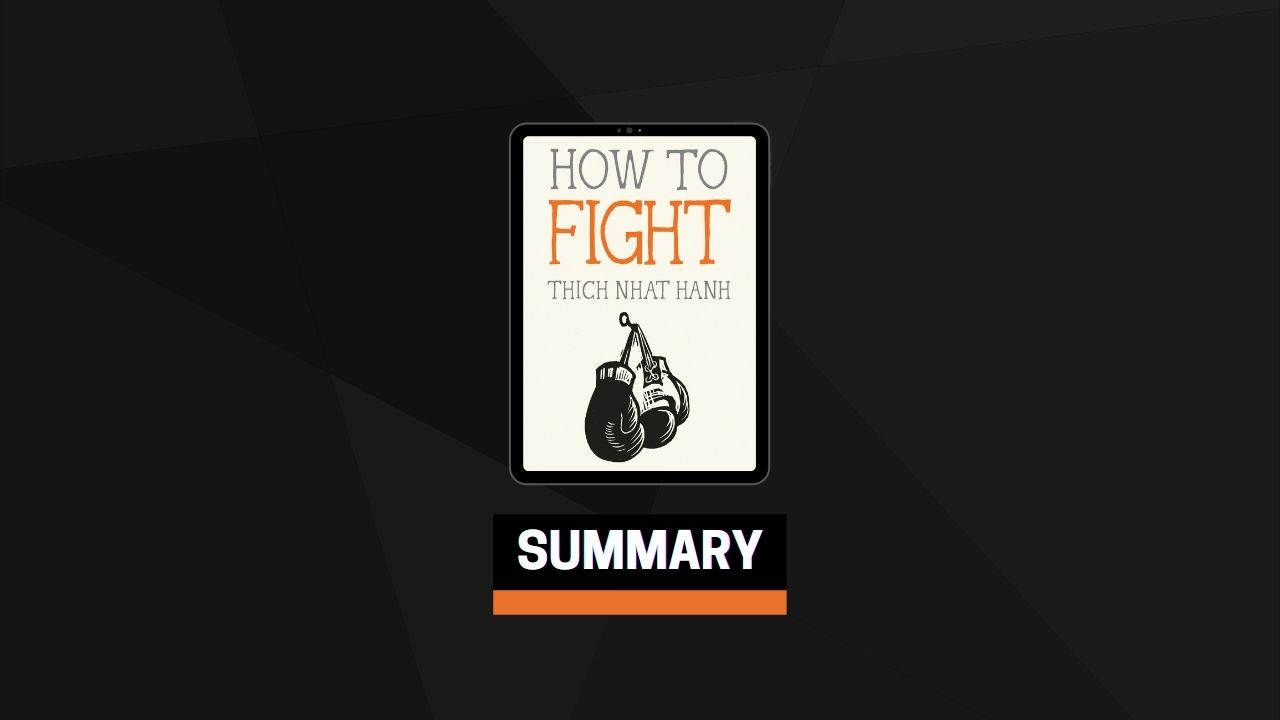When someone says something unkind to you, you may want to retaliate right away. That is where the fight begins. This habitual way of reacting creates a well-worn pathway in your brain. When you travel a neural pathway over and over again, it becomes a habit. Very often that pathway leads to anger, fear, or craving. One millisecond is enough for you to arrive at the same destination: anger and a desire to punish the person who has dared to make you suffer.
Suppose someone just said something unpleasant to you. Their words and the sound of their voice give you an unpleasant feeling. You believe they are trying to make you suffer. Of course you feel the desire to react, to say something back. You feel that if you can express your anger, if you can make them suffer, you will get relief. Most of us react in that way. But mindfulness can help us pause for a moment and become aware of the anger building up in us.
When we feel anger, irritation, or indignation arising in us, we pause. We stop and come back to our breathing straight away. We do not say or do anything when we are inhabited by this kind of energy, so we don’t escalate the conflict. We wait until we’re calm again. Being able to pause is the greatest gift. It gives us the opportunity to bring more love and compassion into the world rather than more anger and suffering.
The cold air doesn’t have to leave the room for the room to become warm. The cold air is embraced by the hot air and becomes warm—there’s no fighting at all between them. Mindfulness is the capacity to be aware of what is going on in the present moment. It is like warm air coming into a cold room. Mindfulness does not fight anger; it recognizes it and says hello. “Breathing in, I know that anger has manifested in me; breathing out, I smile to my anger.” This is not an act of suppression or of fighting. It is an act of awareness. Once we recognize our anger, we can embrace it with tenderness.
We can only understand another person when we’re able to truly listen to them. When we can listen to others with deep compassion, we can understand their pain and difficulties. But when we’re angry, we can’t listen to others or hear their suffering.
Listening deeply to another is a form of meditation. We become aware of our breathing, follow it, and practice concentration, and we learn things about the other person that we never knew before. When we practice deep listening, we can help the person we’re listening to remove the wrong perceptions that are making them suffer. We can restore harmony in our partnerships, our friendships, our family, our community, our nation, and between nations. It is that powerful.
Sometimes when we attempt to listen to another person, we can’t hear them because we haven’t listened to ourselves first. Our own strong emotions and thoughts are so loud in our heart and in our head, crying out for our attention, that we can’t hear the other person.
Before we listen to another, we need to spend time listening to ourselves. We can sit with ourselves, come home to ourselves, and listen to what emotions rise up, without judging or interrupting them. We can listen to whatever thoughts come up as well, and then let them pass without holding on to them. Then, when we’ve spent some time listening to ourselves, we are able to listen to those around us.
Compassionate listening and loving speech are doors that can help us out of even the most difficult situations. Once we have listened with compassion, we can use loving speech to restore communication and understanding. We will know what to say and what not to say so we don’t make the situation worse. To use loving speech means to speak in such a way that inspires joy, hope, and confidence in the other person.
Our words water the wholesome seeds in us and in the other person. There is no anger, judgment, or blaming. We practice to calm ourselves before we express what is in our heart, and we choose our words carefully so the other person can accept what we say and can understand us better.
Often we not only have wrong perceptions about others, we also have wrong perceptions about ourselves. Before beginning a dialogue with someone, it’s important to practice conscious breathing. Calming our emotions and looking deeply, we can become aware of our feelings and of whatever misperceptions we might have that could prevent us from hearing and understanding the other person. This will make our communication with others much more successful.
We know very well that violence only creates more violence. Yet violence has become the substance of our lives. Many of us live in places where there is fighting in the streets and in our homes. Is it any wonder, then, that we fight and see violence as the way to solve problems? If we want to protect life, we have to look deeply as individuals and as a nation into the true nature of violence and war.
To prevent the next war, we have to practice peace today. If we establish peace in our hearts, in our way of looking at things, and in our way of being with each other and with the world, then we are doing our best to make sure the next war will not come. War is the fruit of our collective consciousness. If we wait until another war is imminent to begin to practice peace, it will be too late.
Peace begins here, now.


